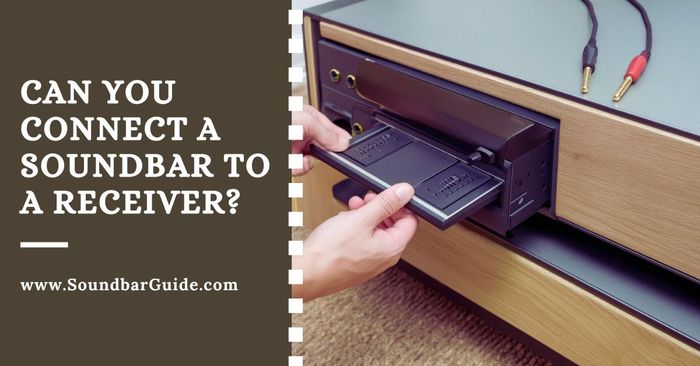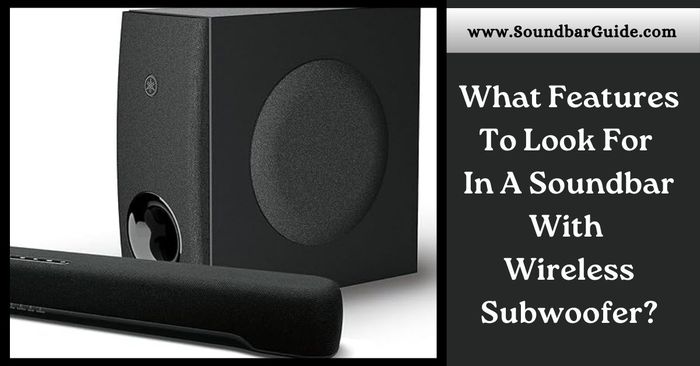In the ever-evolving world of home entertainment, achieving the perfect audio setup is a key pursuit for many enthusiasts.
Soundbars have become a popular choice for enhancing TV sound quality due to their sleek design and ease of use.
However, for those who have invested in a more complex home theater system, the question arises: Can you connect a soundbar to a receiver?
Yes, you can connect a soundbar to a receiver using various methods such as HDMI, optical, or an AUX cable. Ensure that both devices support the selected connection method.
Connecting a soundbar to a receiver might seem counterintuitive at first, given that both devices serve to amplify and enhance audio.
Yet, there are scenarios where this setup can be beneficial, whether for creating a seamless audio experience across multiple rooms or integrating various audio sources more efficiently.
In this blog post, we’ll explore the possibilities, benefits, and potential pitfalls of connecting a soundbar to a receiver.
Whether you’re a seasoned audiophile or a casual listener looking to optimize your sound system, read on to discover how these two devices can work together to elevate your auditory experience.
Table of Contents
Benefits Of Connecting A Soundbar To A Receiver
Are you curious about connecting a soundbar to a receiver? It might seem like an unusual combination, but integrating these two can bring a number of benefits to your home theater setup.
Enhanced Sound Quality
Soundbars excel in producing clear, crisp audio. But when they’re linked to a receiver, the audio quality steps up a notch. Receivers have advanced sound processing capabilities. They can fine-tune audio signals before sending them to the soundbar. This results in richer, more dynamic sound that amplifies your listening experience.
Expanded Audio Channels
Usually, soundbars come with built-in speakers designed to simulate surround sound. By connecting to a receiver, these audio channels can be expanded. Some soundbars have additional inputs that can accommodate more speakers, enhancing the surround effect. You’ll get a more immersive sound that fills the room, perfect for movie nights.
Centralized Control Of Home Theater Systems
A soundbar-receiver combo brings ease of control to your multimedia setup. The receiver acts as a hub, managing various audio inputs from devices like TV, Blu-ray players, and gaming consoles. Instead of juggling multiple remotes or settings, control everything through one device. This simplifies the user interface, making your entertainment system user-friendly and efficient.
Receivers And Their Role In Home Audio
Receivers act as the central hub for a home theater system. They manage audio signals, enhance sound quality, and distribute audio to speakers. Think of a receiver like the brain for your home audio setup. It takes in all the different inputs, decides what to do with them, and sends them where they need to go.
Key Functions Of An Audio Receiver
Every receiver has several key functions. First, it amplifies sound from sources like TV, gaming consoles, or Blu-ray players. Second, it routes the video to your TV. It also processes audio to improve its quality.
- Power amplification – Boosts audio signals for stronger sound.
- Input selection – Switches between audio and video sources.
- Sound processing – Shapes audio quality with equalizers and surround sound.
- Radio tuning – Accesses AM/FM radio stations.
Compatibility Considerations With Soundbars
Before connecting a soundbar to a receiver, check compatibility. Most receivers work with traditional speakers. But, soundbars often have their own processing and amplification.
| Feature | Receiver | Soundbar |
|---|---|---|
| Amplification | Built-in | Built-in |
| Processing | Advanced | Some |
| Connectivity | Multiple inputs/outputs | Limited |
To connect, the soundbar needs a compatible input. HDMI ARC is common in modern setups. If the receiver supports it, and so does the soundbar, they can work together. An optical output from the receiver can link to an optical input on the soundbar as well.
Can You Connect A Soundbar To A Receiver?
Yes, you can connect a soundbar to a receiver, although it’s not the most common setup due to the redundancy it creates.
Soundbars are designed to simplify audio systems by combining multiple speakers and sometimes an amplifier into a single unit. Receivers, on the other hand, are central hubs for home theater systems, distributing audio and video signals to various components.
Connecting a soundbar to a receiver can be useful in specific scenarios, such as when you want to use a soundbar’s specific audio enhancement features or when the soundbar is part of an existing home theater system that includes a receiver.
To connect a soundbar to a receiver, you typically use either an HDMI ARC (Audio Return Channel) connection or an optical digital audio cable. With HDMI ARC, the soundbar and receiver can send audio signals back and forth, allowing for seamless control and high-quality audio.
An optical cable can also transmit high-quality audio, but it lacks some of the advanced features of HDMI ARC. When connecting the two, ensure the receiver’s output is compatible with the soundbar’s input, and configure the settings on both devices to recognize the connection.
While this setup can enhance audio performance in some cases, it’s essential to consider whether it aligns with your overall audio needs and whether a more straightforward system might suffice.
Connecting A Soundbar To A Receiver: The Process
Wondering how to enhance your home theater experience by adding a soundbar to your receiver? This guide provides you with simple instructions to connect your devices easily.
Follow these steps, and you’ll enjoy cinematic audio in no time!
Identifying Compatible Connections
First, let’s find out what type of connections your soundbar and receiver support. Look at the back of your devices. You may see HDMI, optical, or AUX ports. Use the best quality connection that both devices have. If you’re unsure, refer to the manuals.
Setting Up Audio Output From Receiver To Soundbar
- Turn off both devices. This prevents any electrical issues during setup.
- Connect an HDMI cable to the receiver’s ‘HDMI ARC’ port. Plug the other end into the soundbar’s ‘HDMI ARC’ input.
- If they lack HDMI, use an optical cable. Connect one end to the receiver’s optical out. Attach the other to the soundbar’s optical in.
- For devices with only AUX, use a 3.5mm audio cable. Insert each end into the respective AUX ports.
- Power on your receiver and soundbar. Choose the correct input on the soundbar. It should correspond to the cable type used.
- In the receiver’s audio settings, disable its speakers. This ensures audio plays through the soundbar only, without echo.
- Test your setup with a movie or music track. Check for clear audio pass-through.
With these simple steps, your soundbar is now connected to your receiver. Enjoy an immersive sound experience!
FAQs On Can I Connect A Soundbar To A Receiver
Can A Soundbar Be Used With A Surround Sound System?
Yes, a soundbar can be integrated with a surround sound system for enhanced audio. Compatibility and connectivity should be checked before setup.
Can You Add Wired Speakers To Soundbar?
Yes, you can typically add wired speakers to a soundbar if it supports external speaker connections. However, not all soundbars have this capability, so it’s important to check the specifications of your particular model. Additionally, keep in mind that adding wired speakers may require additional cables and setup.
Can You Connect A Samsung Soundbar To Any TV?
Yes, you can generally connect a Samsung soundbar to any TV that has compatible audio output ports. Ensure your TV has either HDMI ARC, optical, or Bluetooth connectivity to establish a seamless audio connection with the Samsung soundbar.
Can You Add Speakers To Soundbar?
Yes, you can typically add speakers to a soundbar, but it depends on the specific model and its connectivity options. Some soundbars offer additional speaker connectivity through wireless or wired connections, allowing you to expand your audio setup for a more immersive experience.
Are Soundbars Worth It?
Soundbars are worth it for many people because they significantly enhance TV audio quality with minimal setup and space requirements. They offer a convenient and cost-effective way to experience improved sound clarity and immersive audio without the complexity of traditional home theater systems.
Conclusion
In conclusion, connecting a soundbar to a receiver can be a viable option for enhancing your audio experience, but it requires careful consideration of compatibility and connection methods.
Whether you’re looking to integrate a soundbar into a complex home theater system or simply seeking to improve your TV’s audio quality, understanding the various connection types and ensuring your equipment can work together is crucial.
By following the steps and tips outlined in this guide, you can successfully connect your soundbar to a receiver and enjoy a richer, more immersive sound experience.
Remember, the key to achieving the best audio setup lies in proper planning and choosing the right components for your specific needs.
Happy listening!


![How To Connect Vizio Soundbar To Vizio TV: [Step By Step Guide]](https://soundbarguide.com/wp-content/uploads/2024/10/how-to-connect-vizio-soundbar-to-vizio-tv.jpg)


Leave a Reply